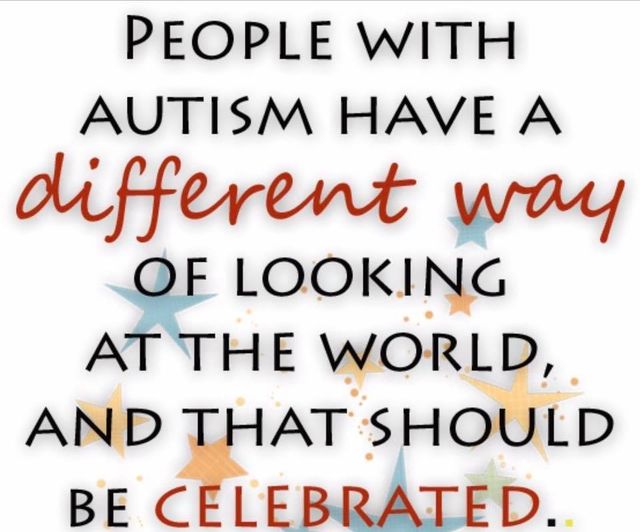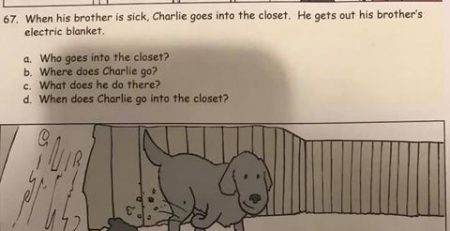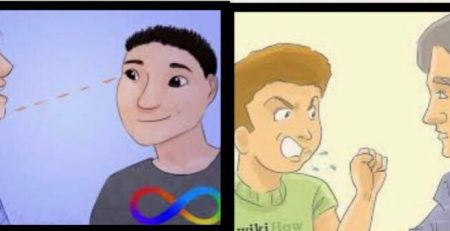AttachAvi Autism Awareness!
Autism Myths and FactsA diagnosis of autism is not the end of love and hope — nor is it a guarantee of extraordinary “savant” abilities. But media stories thrive on the most frightening, extraordinary, and heart-wrenching circumstances. Here are just a few of the myths perpetuated by TV, magazines, and movies — myths that undermine understanding and make it even tougher to manage real-world autism.As you read through these myths, bear in mind that the vast majority of people with autism are neither geniuses nor severely disabled. They are also very different from one another. What they share are challenges in specific areas of functioning that are severe enough to make daily activities unusually difficult.1Myth: If I’ve met an autistic person (or seen the movie Rain Man), I have a good idea of what all autistic people are like.Fact: Autistic people are as different from one another as they could be. The only elements that ALL autistic people seem to have in common are unusual difficulty with social communication.2Autistic People Don’t Have FeelingsMyth: Autistic people cannot feel or express love or empathy.Fact: Many — in fact, most — autistic people are extremely capable of feeling and expressing love, though sometimes in idiosyncratic ways! What’s more, many autistic people are far more empathetic than the average person, though they may not always express their empathy in a typical manner.3Autistic People Don’t Build RelationshipsMyth: Autistic people cannot build solid relationships with others.Fact: While it’s unlikely that an autistic child will be a cheerleader, it is very likely that they will have solid relationships with, at the very least, their closest family members. And many autistic people do build strong friendships through shared passionate interests. There are also plenty of autistic people who marry and have satisfying romantic relationships.4Autistic People Are a Danger to SocietyMyth: Autistic people are dangerous.Fact: Highly publicized news reports of individuals with Asperger Syndrome committing violent acts have led to fears about violence and autism. While there are many autistic individuals who exhibit violent behaviors, those behaviors are often directed toward themselves rather than toward others. In addition, aggressive behaviors from people with autism are almost always caused by frustration, physical and/or sensory overload, or similar issues. It’s very rare for an autistic person to act violently out of malice.5All Autistic People Are SavantsMyth: Autistic people have amazing “savant” abilities, such as extraordinary math skills or musical skills.Fact: It is true that a relatively few autistic people are “savants.” These individuals have what are called “splinter skills” which relate only to one or two areas of extraordinary ability. By far the majority of autistic people, though, have ordinary or even less-than-ordinary skill sets.6Autistic People Have No Language SkillsMyth: Most autistic people are non-verbal or close to non-verbal.Fact: It’s true that some individuals with an autism diagnosis are non-verbal or nearly non-verbal. But the autism spectrum also includes extremely verbal individuals with very high reading skills. Diagnoses at the higher end of the spectrum are increasing much faster than diagnoses at the lower end of the spectrum.7Autistic People Have Little Potential for SuccessMyth: I shouldn’t expect much of an autistic person.Fact: This is one myth that, in my opinion, truly injures our children. Autistic individuals can achieve great things — but only if they’re supported by people who believe in their potential. Autistic people are often the creative innovators in our midst. They see the world through a different lens — and when their perspective is respected, they can change the world.If You’ve Met One Person with Autism…There’s a popular saying, “if you’ve met one person with autism, you’ve met one person with autism.” Next time you hear a media story that presents autistic people as tragic or outrageously talented, bear in mind that the story is about just one individual. The kid down the street — or in your class — is probably a very different person.











Leave a Reply